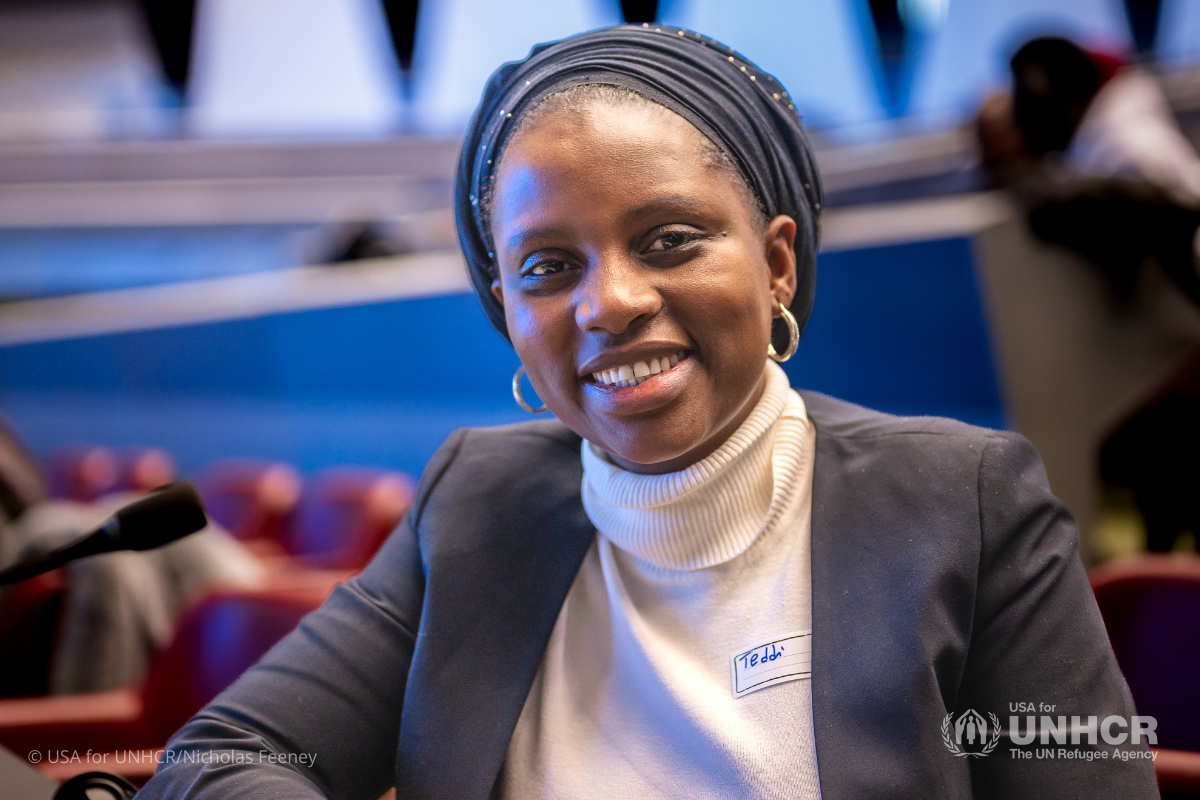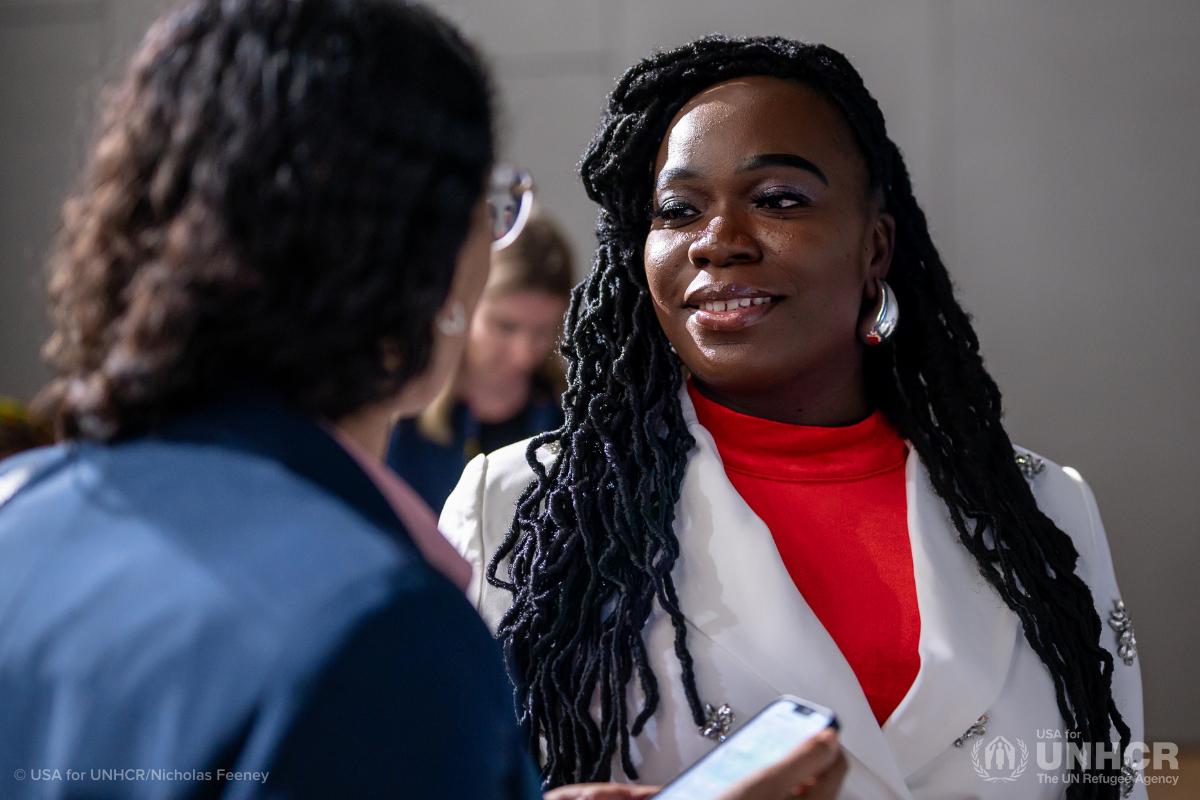Refugee women: heroes during COVID-19 response
Doctors, teachers, entrepreneurs - around the world, refugee women and girls are playing fundamental roles in supporting their families and communities amidst the most difficult circumstances. From saving lives during the pandemic to becoming agents of change, their acts of heroism probably won’t appear in tomorrow’s headlines, but they are worthy of recognition and celebration on International Women’s Day. Here are some of their stories:
Dr. Carmen Parra
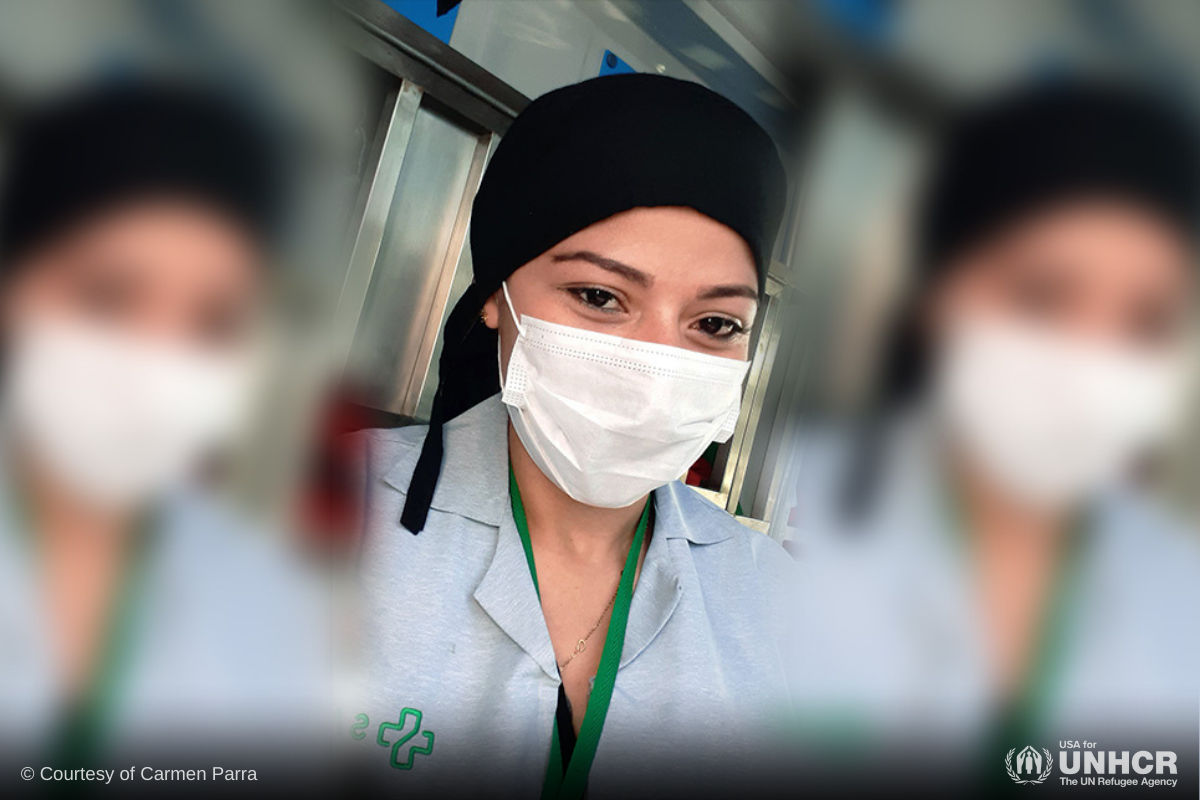
Like countless doctors and nurses in Latin America, 24-hour shifts have become the exhausting norm for Carmen. She works four days a week in an ambulance visiting patients suspected of having COVID-19 and transports those in critical condition to hospitals.
“I spend days without seeing my children. Just recently I had to work two shifts because one of my colleagues got sick. Sometimes I think it is better because I am afraid that I could infect them,” she says.
At 35 years old, Carmen is familiar with crisis. She fled violence in Venezuela three years ago and sought asylum in Peru with three young children. Despite having a medical degree, she worked as a waitress and in retail sales before landing a job that was the closest she could come to practicing her profession – as receptionist for a medical clinic.
Thanks to the support of a Venezuelan organization called Union Venezolana and the UN Refugee Agency, Carmen was able to validate her medical credentials and has now joined the fight against the coronavirus disease. While her working life as a single parent in a foreign country is hard, Carmen is thankful to be practicing her profession again and is entirely committed to saving lives.
Mitumba Mirafuyo
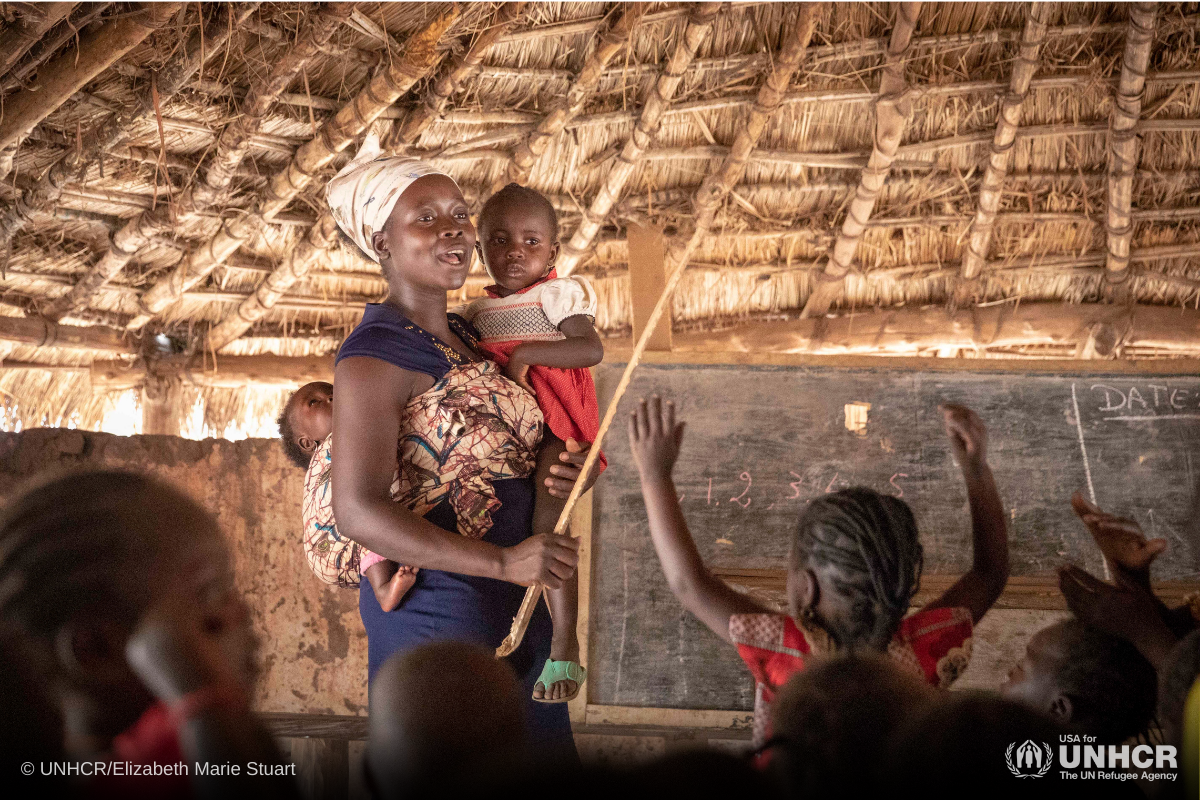
At Makpandu refugee settlement in South Sudan, Mitumba teaches a pre-school class while carrying her 4-month-old baby girl on her back.
“Preschool keeps the children together, safe and healthy. They eat and play as children from one family. I love being able to help the children find solutions to their problems and I’m happy to see them developing in the right way,” Mitumba explains.
Along with other refugee parents, the 27-year-old refugee from the Democratic Republic of the Congo (DRC) volunteers to teach lessons for the kids using the South Sudanese national curriculum. Today, more than 400 children, including 190 South Sudanese children, have enrolled in classes and the school has been ranked among South Sudan’s top performing schools.
Even during the pandemic, the parent’s association has been working tirelessly with UNHCR to support children so that they can continue studying from home. Amid challenging circumstances, Mitumba’s determination is helping build a better future for the next generation in South Sudan.
Liesse Ombeni
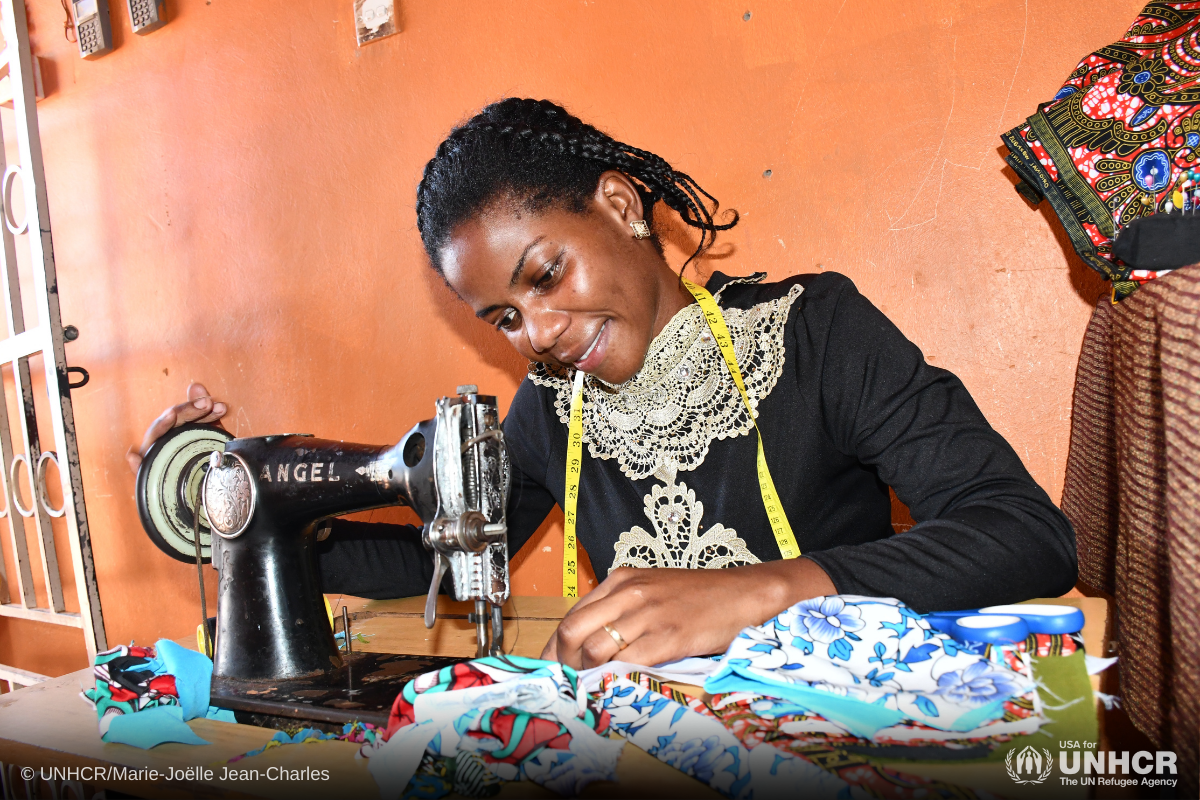
Under the needle of her sewing machine, Liesse adds some finishing touches to the face mask that she just made. A mother of five, this young Congolese woman has been able to support her family during the pandemic by producing non-medical, washable masks.
Like many refugee women in Uganda, Liesse was forced to flee her home in the DRC and sought refuge in Kampala in 2015. When she arrived, she enrolled in a six-month tailoring program at a UNHCR-funded community center and, shortly after, started a small business near her home. But when lockdowns to slow the curve of COVID-19 reached Uganda, the family business started to dwindle and Liesse had to adapt swiftly in order to support her family. She is now working hard to produce 50 masks per day so that she can pay for her children’s school fees. During these challenging times, Liesse has remained strong and hopeful that things will get better soon.
How you can help refugee women…
Together, we can deliver hope and support to refugee women. By making a donation here, you can help ensure refugee women around the world get the support they need to achieve their fullest potential.
